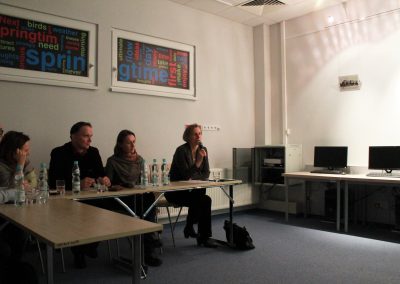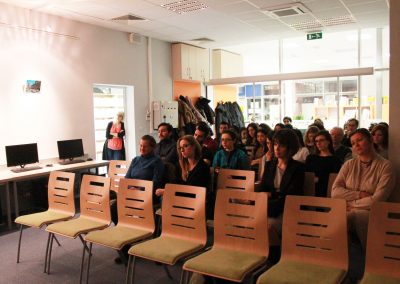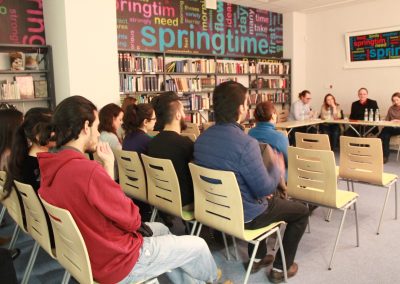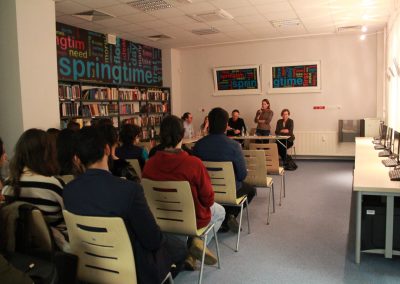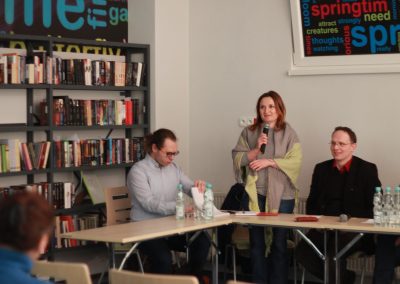On Wednesday we met in the Municipal Library Fil. 4 to participate in the debate entitled Gender ideology(ies): Man and woman – different by nature, inequal by society? We tried to find the answer to this question with our four guests: sociologists Borys Cymbrowski and Anna Czerner, philologist Katarzyna Molek-Kozakowska and biologist Elżbieta Pogoda.
We were aware that for most people the term gender is unfamiliar or even unfriendly, especially when someone is not a philologist or a social researcher, so we started with the basic questions: what gender is, how it exists in our respective fields of studies, and if there exists gender ideology. We can say that gender in general is about social consequences of being men, women or the others, because in the opinion of Elżbieta Pogoda even from a biological point of view there are more than only two sexes. And there is no evidence that one sex has an advantage over another.
In Polish media we encounter some false beliefs about the meaning of the word “gender”. But as Borys Cymbrowski mentioned it is a problem of confusion of nature with culture, because in the Polish language we have only one word (płeć) for gender and for sex. So some commentators confuse biological meaning with the cultural one. They accuse gender scholars of promoting a dangerous ideology which tries to convince people to choose their sex. As Anna Czerner said, the truth is that in the social sciences gender was a neutral category to analyse the relations between people in society, but unfortunately some institutions and politicians took one of the least popular topics in gender studies and used it as a basis to create and apply gender ideology as a political tool.
After that we focused mostly on language aspects within gender issues. Katarzyna Molek-Kozakowska indicated that for her it was easier to introduce herself in English than in Polish, because in Polish most names of academic professions have only a masculine gender, or even if it has a female gender, masculine forms sound more serious and more prestigious. But language is not a constant phenomenon – it is changing all the time. Twenty years ago we considered some female forms of words as strange, but today we take them for granted. We concluded that it is important to include more women-related forms to language, and it is one of the main catalysts of social changes in the public sphere.
We are really glad we could discuss it with you and with the citizens of Opole. We would like to thank you all for your presence and participation, and we hope to see you soon during another discussion. The aim of the whole debate was to clarify a little the problem of gender, but two hours is a short time when you are discussing such an important and complicated topic – so we treat this meeting only as a start. The debate is still open.
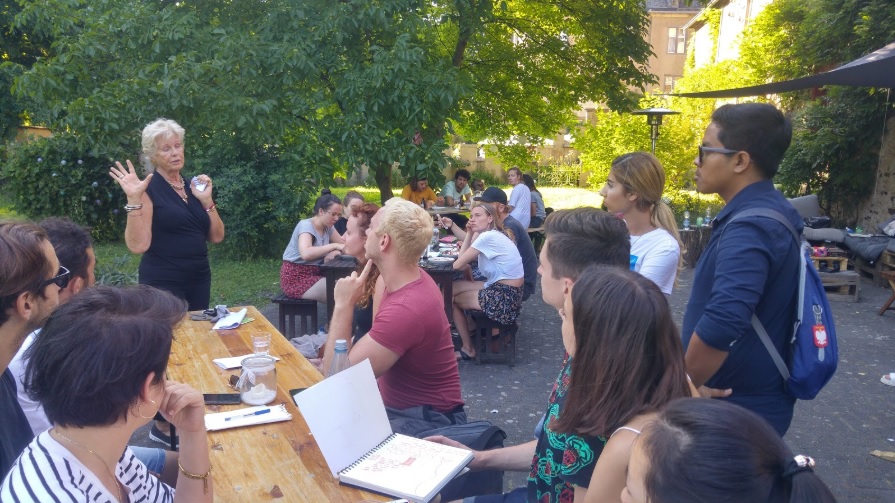
Intercultural Typography research project – call for applications
Intercultural Typography research project Call for ApplicationsDear students, we are seeking students from different disciplines who are interested in participating in a research project on Intercultural Typography. The work in a form of Erasmus+ traineeship will take...
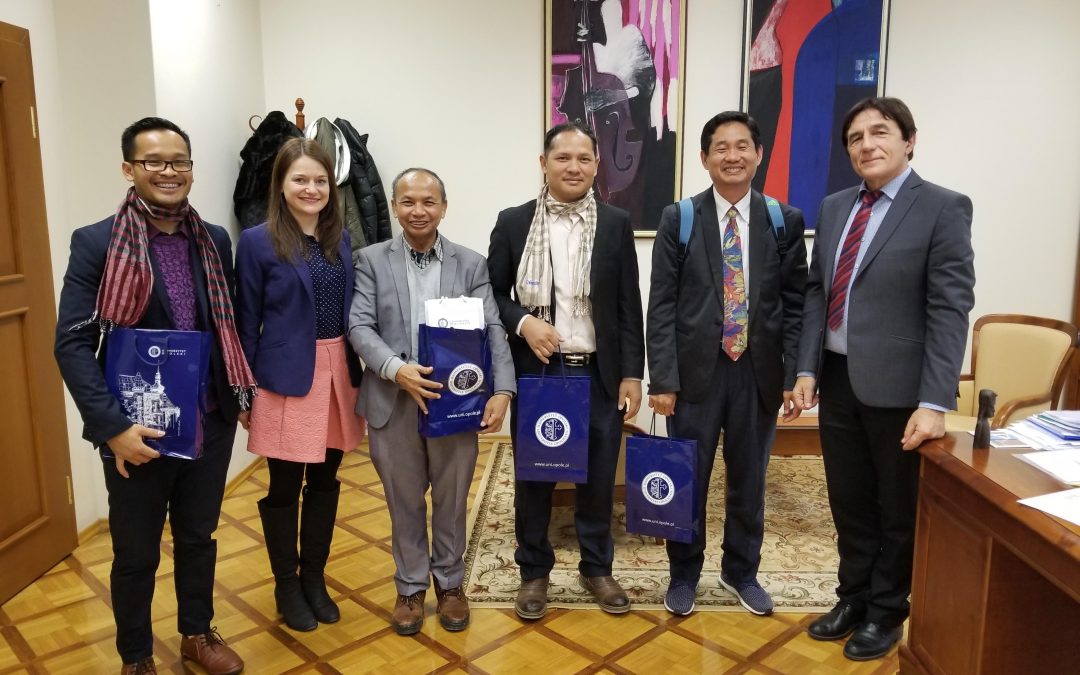
Guests from Cambodia visited University of Opole
During the week 19th-23rd November we had the pleasure to host the guests from Pannasastra University, Cambodia. This visit was possible thanks to the collaboration of Univerity of Opole and Pannasastra University within the Erasmus+ Programme. During the visit, our...
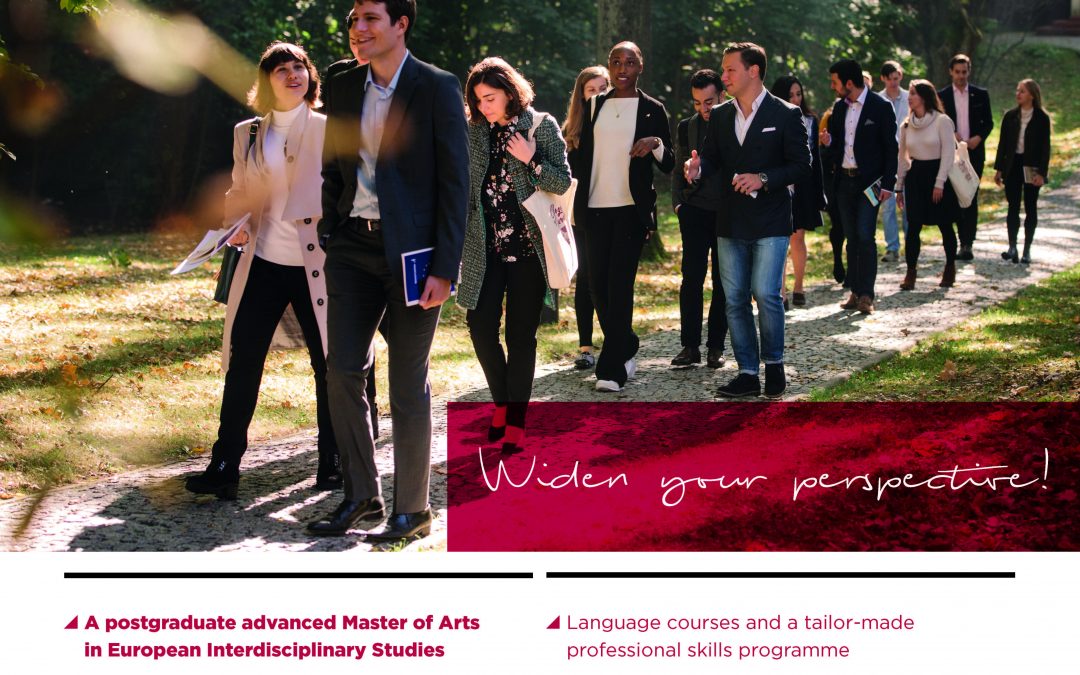
College of Europe
College of Europe Natolin Campus in WarsawRecruitment for academic year 2019/2020 College of Europe announced recruitment for their postgraduate programme for the academic year 2019/2020. College of Europe is one of the oldest and most prestigious academic...
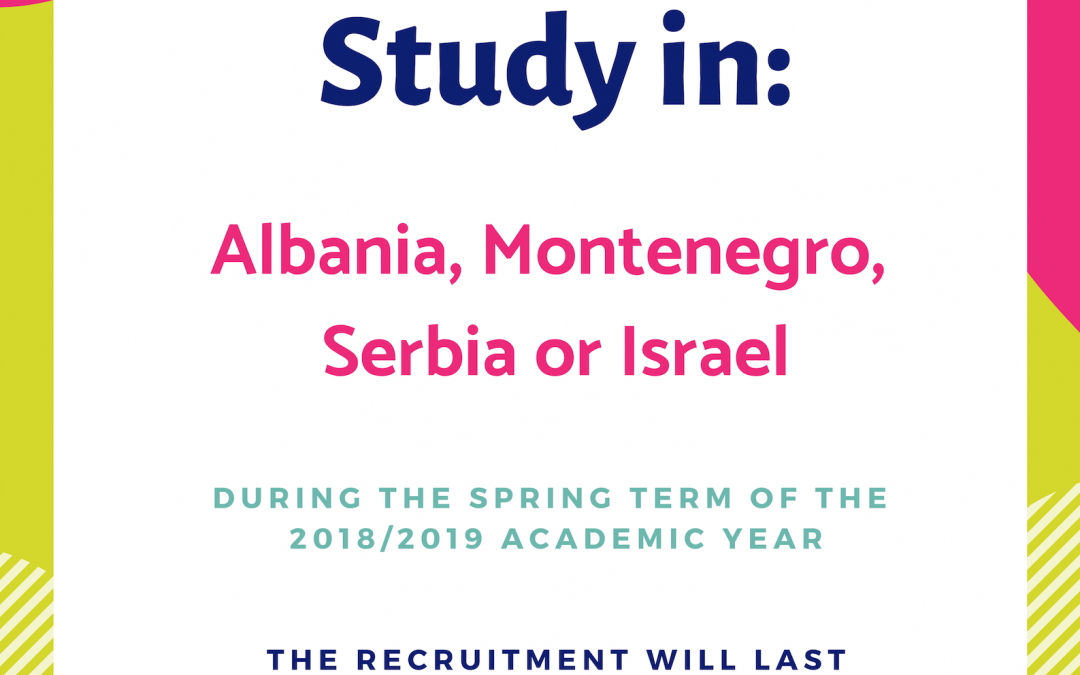
Recruitment for studies in Albania, Montenegro, Serbia and Israel!
Dear Students, The only chance to study under the Erasmus+ Programme in Albania, Montenegro, Israel and Serbia during the spring term 2018-2019. 5-moth stay granted with 4000 EUR plus financial support for journey. The list of partner universities and UO department...
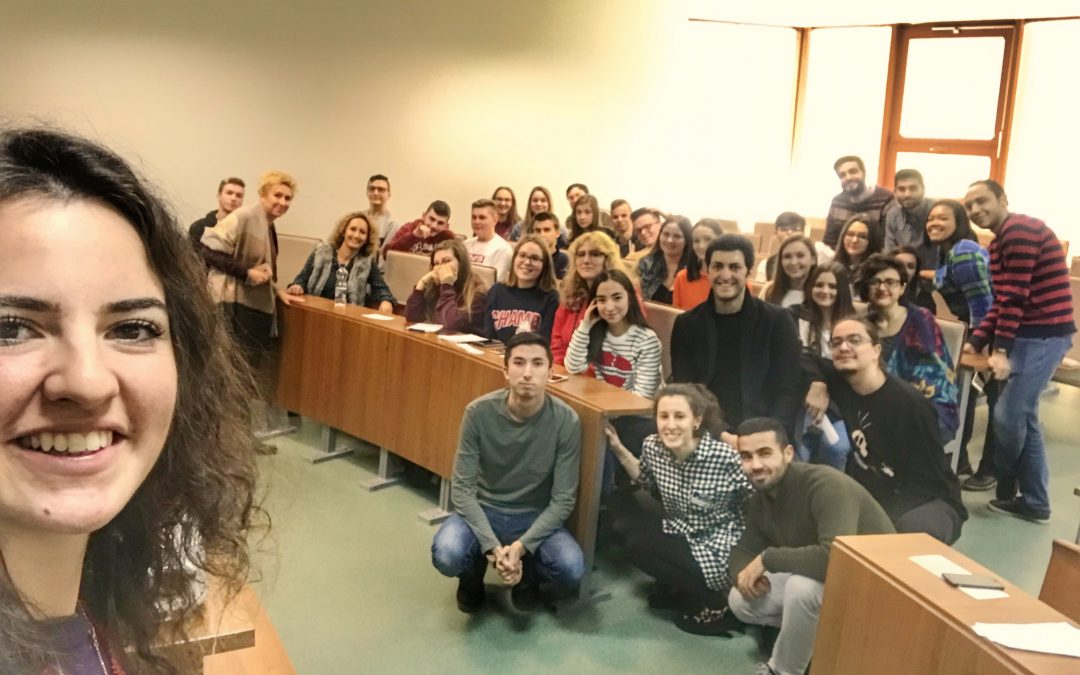
‘Through y/our eyes’ – a workshop for high school pupils from Nysa
'Thorugh y/our eyes' - a workshop for high school pupils from Nysa On Friday, November 30, 2018, a group of highschool students from Nysa together with their teachers visited the University of Opole. Emil Godlewski High School hosts students from Ukraine and...
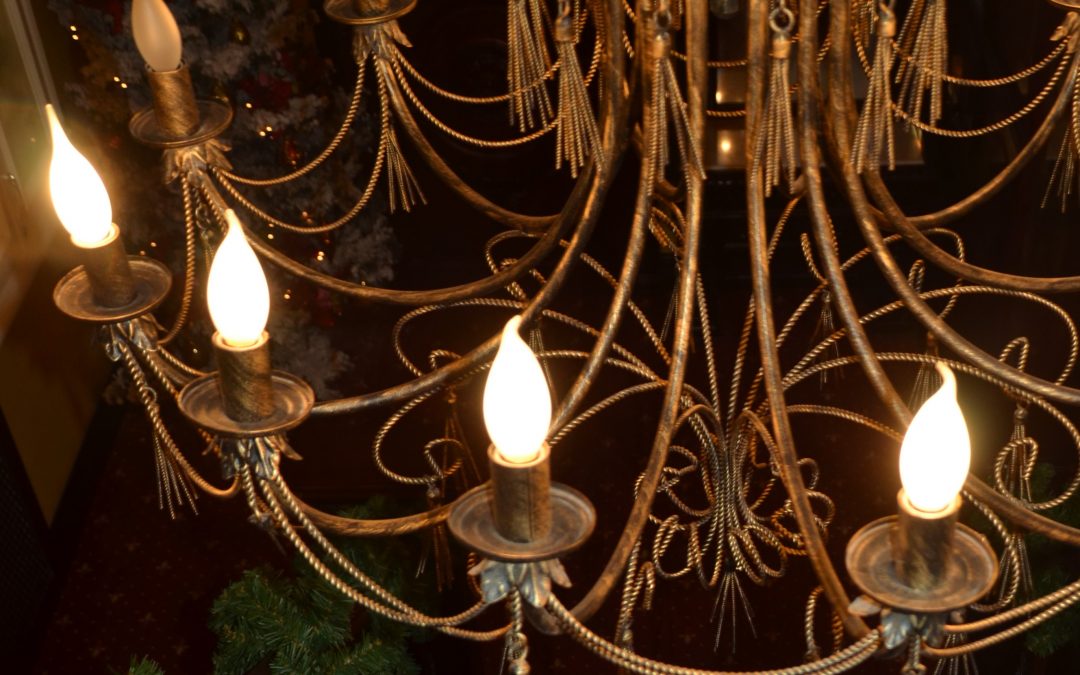
Christmas Carols Concert
Christmas Carols Concert Retro BandDear Students! Christmas is getting closer every day, and what better way to feel the air of festivity than through carols? On December 3, at 4.30 pm in the University of Opole Museum (Collegium Maius) a concert of Retro vocal-...
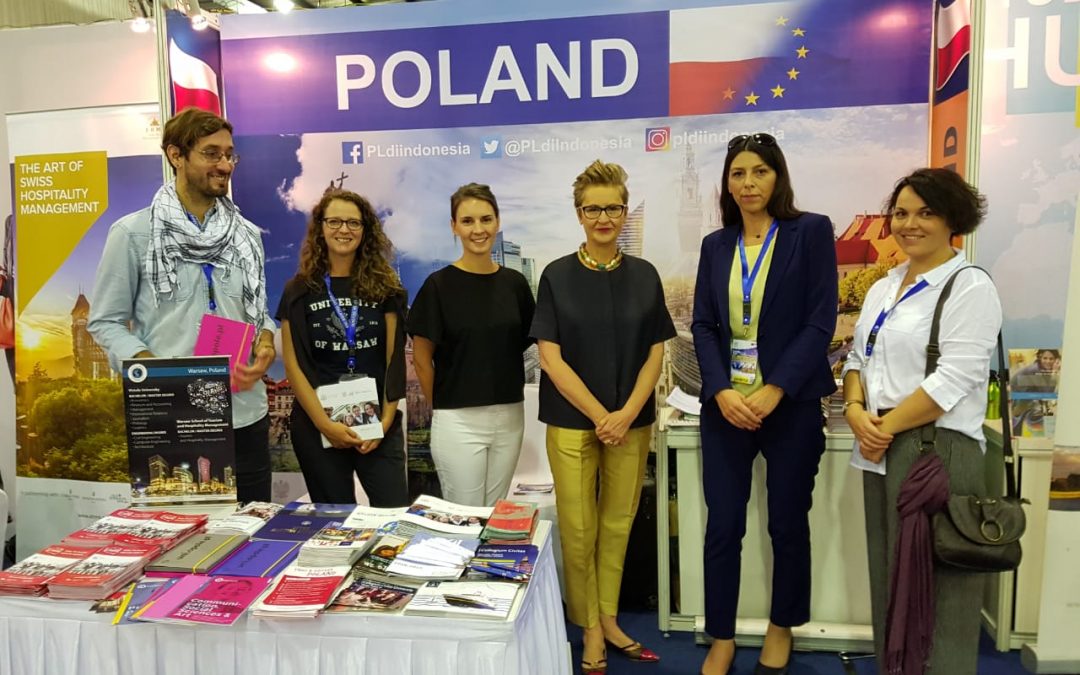
University of Opole in Indonesia
The European Higher Education Fair (Ehef.id) took place in Indonesia from 8 to 13 November 2018. The events in Jakarta, Bandung and Yogyakarta were attended by several hundreds of exhibitors from the European Union and tens of thousands of Indonesian pupils, students...
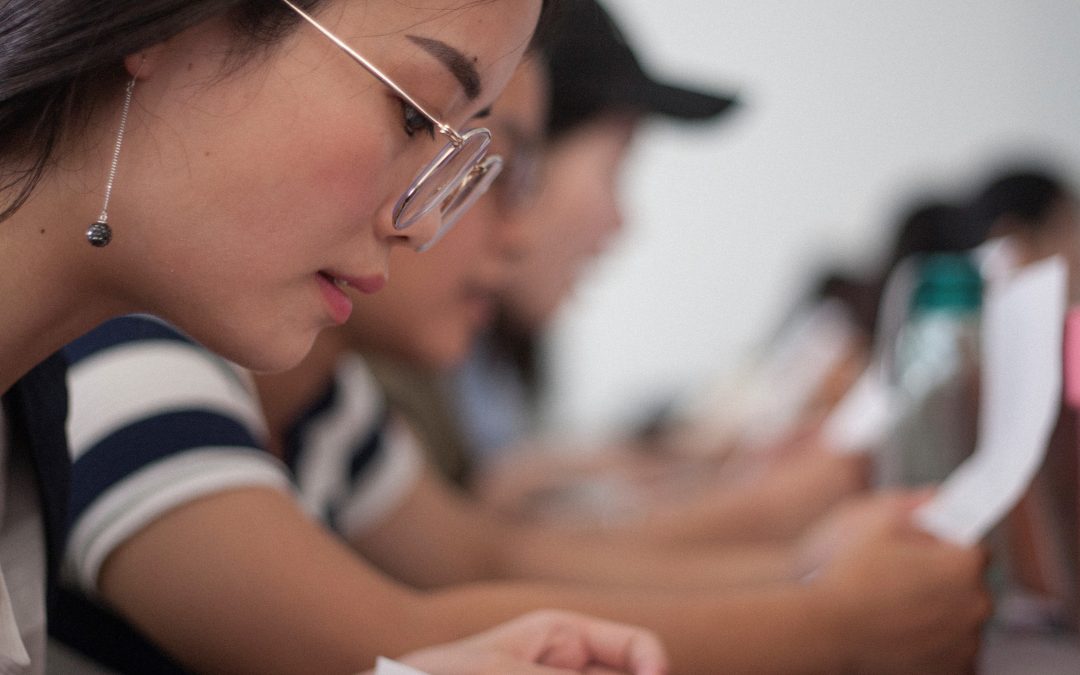
Summer Semester 2018/2019 Variable Course Registration
variable course registration summer semester 2018/2019Dear students Next Monday, the 3rd of December, at 8 a.m., a registration for the summer semester variable course will open. As usual, we advise you to go to USOSweb and look through the courses in advance, because...
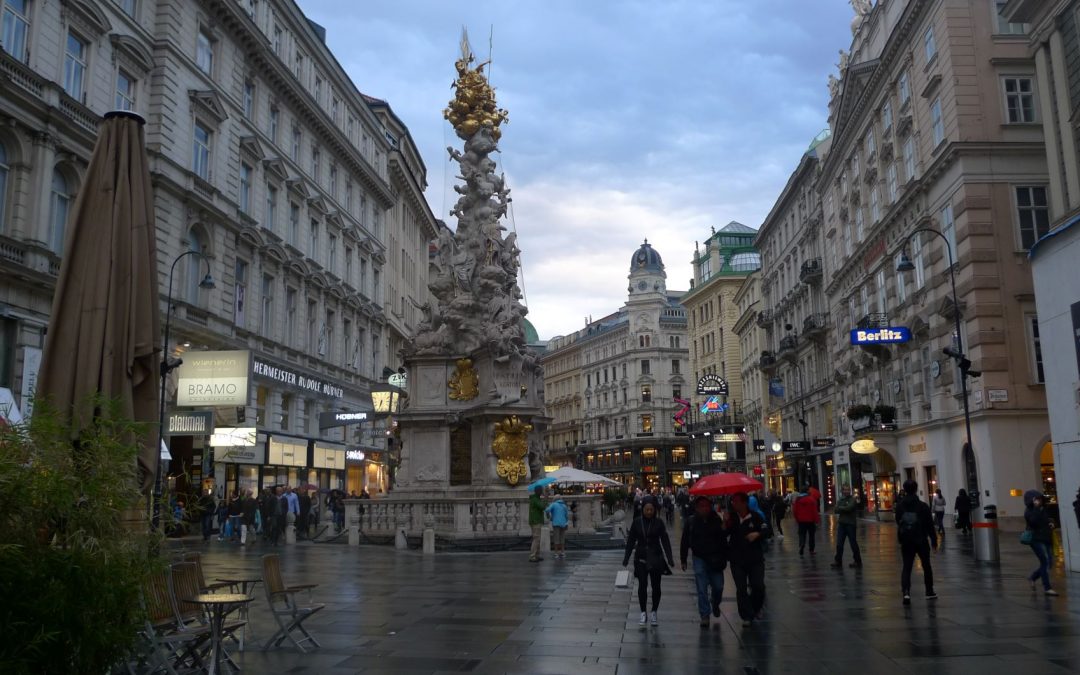
New direct train to three European Capitals
new direct train connection to three europan capitals euronight metropolBerlin, Vienna, and Budapest with EuroNight Metropol train Were you planning a weekend trip to one of the European Capitals, but you couldn't find a suitable means of transport? EuroNight Metropol...
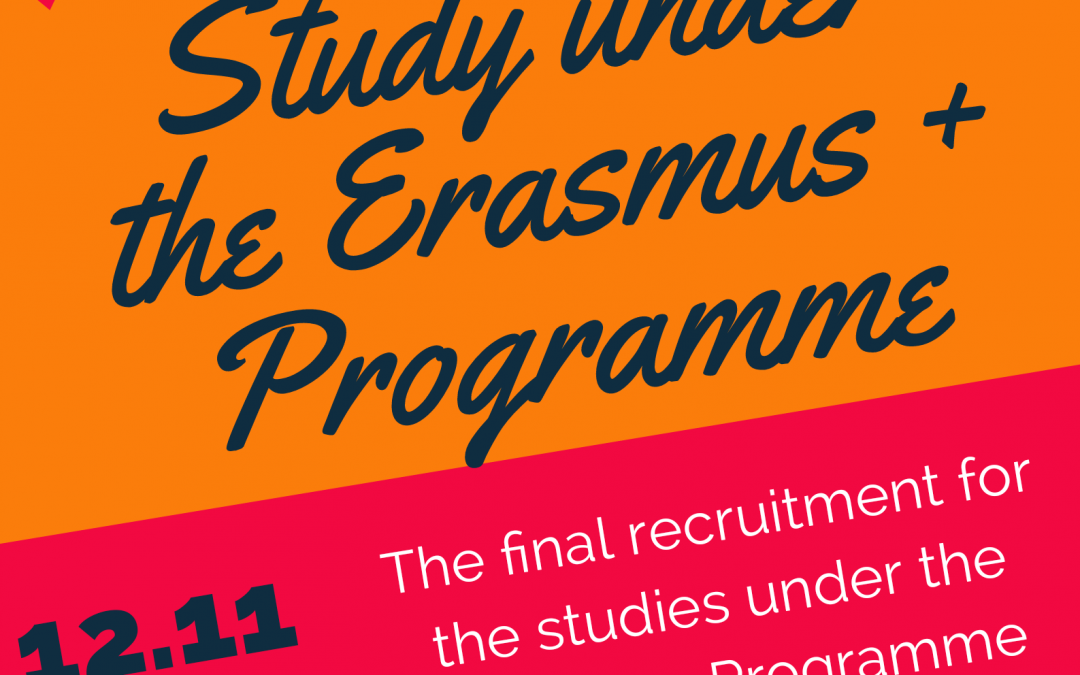
Final recruitment for the summer term of the 2018/2019 academic year!
Dear Students, you have the last chance to take part in the recruitment for the mobility for studies under the Erasmus+ Programme during the summer term of the 2018/2019 academic year. The recruitment will last 12.11.2018 - 23.11.2018. If you are interested to take...
